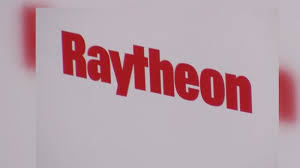Raytheon’s Defective Pricing Fraud and Resolution (Part II of IV)

Raytheon’s criminal conduct cut across a variety of topics — it is difficult to imagine but Raytheon’s misconduct occurred in separate parts of the company, involving violations of different laws. Like most cases, I always question initially: What was Raytheon’s corporate culture? What was the tone set by Raytheon’s leadership? middle management?
Raytheon’s weak culture appears to have permeated every aspect of the large conglomerate. In reviewing each of the substantive violations, it is important to keep track of the companies and divisions involved. The scorecard reveals quite a picture of malfunctions and misconduct.
Starting first with the defective pricing fraud, this portion of the case and the resolution were filed in the District of Massachusetts. As agreed to between DOJ and Raytheon, from 2012 through 2013 and again from 2017 through 2018, Raytheon employees provided false and fraudulent information to the Department of Defense (“DOD”) during contract negotiations concerning two contracts with the United States for the benefit of a foreign partner — one to purchase PATRIOT missile systems and the other to operate and maintain a radar system.

In both situations, Raytheon employees provided false and fraudulent information to DOD in order to mislead DOD into awarding the two contracts at inflated prices. These schemes to defraud caused the DOD to pay Raytheon over $111 million more than Raytheon should have been paid on the contracts.
Under the terms of the DPA, Raytheon agreed to a criminal monetary penalty of $146,787,972, pay $111,203,009 in victim compensation, and retain an independent compliance monitor for three years. The Justice Department has agreed to credit the victim compensation amount against restitution Raytheon pays to the Civil Division in its related, parallel False Claims Act proceeding.
Pursuant to the DPA, in addition to the independent compliance monitor, Raytheon and RTX have agreed to continue to implement a compliance and ethics program at Raytheon designed to prevent and detect fraudulent conduct throughout its operations.

In addition, the Justice Department’s resolution ensures that the appropriate federal agencies can proceed with determining whether Raytheon or any other individuals or entities associated with the company should be suspended or debarred as federal contractors. Pursuant to the Federal Acquisition Regulations (“FAR”), when more than one agency has an interest in an entity’s potential suspension or debarment, the FAR requires that the Interagency Suspension and Debarment Committee (“ISDC”) identify the lead agency for conducting governmentwide suspension or debarment proceedings. In connection with this resolution, the Justice Department has referred Raytheon’s factual admissions to the appropriate officials within the DOD to initiate the process with the ISDC to identify which federal agency will take the lead in such administrative proceedings, which occur independently of the Justice Department’s criminal and civil resolutions.















